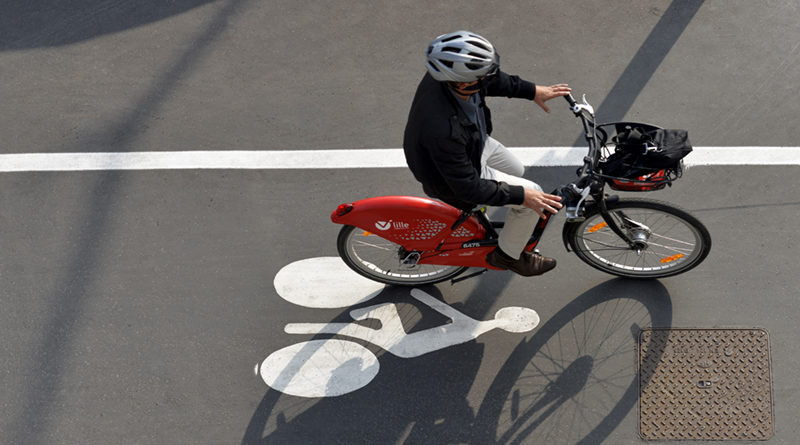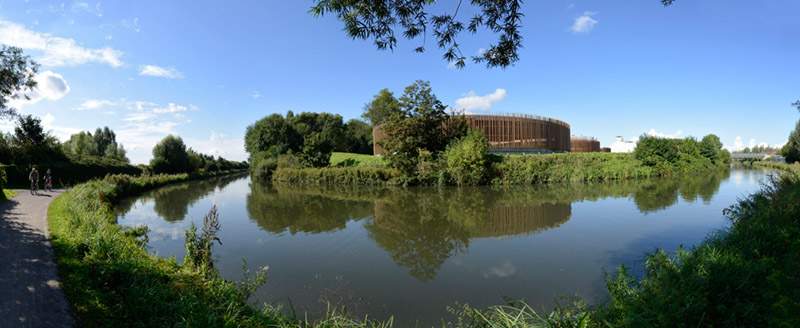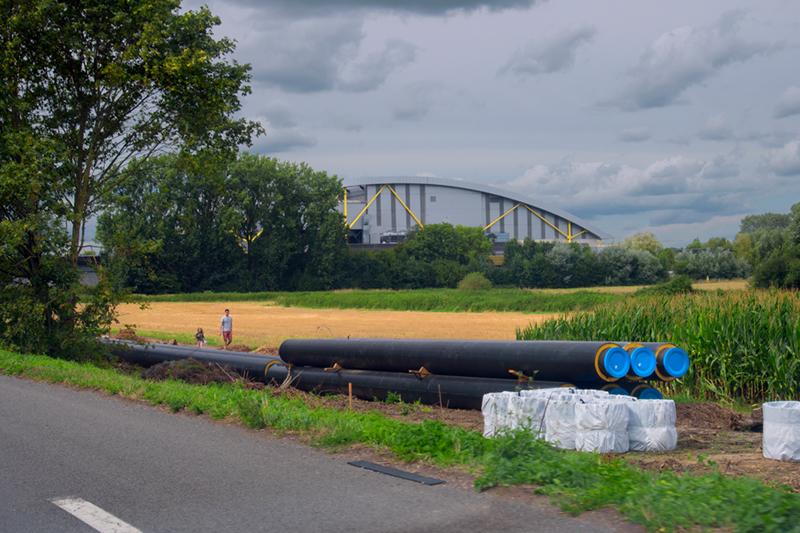
The time has come for Regions to undertake ecological transition and adapt to climate change. The example of Lille Metropole (MEL) and its climate budget
If France has succeeded in reducing its Greenhouse Gas Emissions (GGE) by 19% between 1990 and 2018, much remains to be done for it to reach the carbon neutrality objective by 2050 and reduce its CO2 by 50 to 55% by 2030 as the new “Green Deal” recommends.
The commitment against global warming directly concerns local authorities, which influence more than half of national GGE through their undertakings. Local authorities and in particular Metropolises also have a major role to play in reaching these objectives and more widely in terms of adapting our territories to climate change and improving population’s living conditions.
In this context, the energy transition law for green growth voted in France in 2015 has reinforced the role of inter-municipal cooperations by positioning them as coordinators of energy transition at local level around a new strategic framework, the Territorial Energy, Air, Climate Plan (PCAET).
This has been developed with regional stakeholders, businesses, non-profit associations, the academic world and citizens, which carry both strategy and action plans in terms of sustainable ecological transition.
For local authorities and urban ones in particular like the Metropolises, there are many challenges:
-Contribute to international and national efforts to reduce greenhouse gas emissions and therefore energy consumption, in order to limit global warming, a general phenomenon that affects all regions.
-Prepare and protect the population from the inevitable consequences of warming of which the effects can already be seen: more intense and regular heatwaves, extreme meteorological events, decrease in the quality and quantity of water resources, loss of agricultural production, biodiversity degradation…
-Sustainably improve air quality, mainly deteriorated by heating methods and transport, which have a major impact on inhabitants’ health and quality of life. A new European directive on the subject will be published at the end of 2020.
At the instigation of its President, Damien Castelain, and the Vice-president of sustainable development, Christiane Bouchart, and on the basis of a sound regional diagnosis of our region’s assets and weaknesses, Lille Metropole voted its PCAET on 13 December 2019 by adopting a bold strategy based on three major pillars in terms of climate-air-energy policy:
-Energy transition should lead the region to be carbon neutral by 2050;
-A balanced and supportive transition of the region, based on stakeholders’ mobilisation and participation and paying attention to reducing social inequalities;
-A transition resulting in a more resilient region faced with the various impacts of climate change, enabling inhabitants’ quality of life to be preserved and improved. Specific attention is given to environmental health determining factors in particular.
This ambition is based on a unique and original approach in France and gives Lille Metropole a climate budget. The aim of this climate budget is to enrich the financial elements relating to public policies and projects presented in the budget by a section allowing their climate impacts to be understood.
As such, each party can measure how spending and in particular investments meet objectives set by the PCAET. It’s a tool to help decision-making but also a model change we propose to undertake in the region.
This first stage is intended to be extended to other challenges. From now on, Lille Metropole is evaluating the impact of its public policies with regard to the 17 sustainable development objectives of the United Nations.
The Covid-19 crisis that we have just experienced is certainly a global systemic crisis but repercussions are local. It reminds us of the importance of the challenges to be met and the relevance of our PCAET tool.
This crisis highlights the vulnerability of our territories and the need to accelerate the transition to strengthen our resilience to health and climate risks, especially in Europe.
It also reminds us that this transition must be carried out by reducing the underlying inequalities in order to strengthen the protection of the whole population and its adaptive capacities.

Circular economy, sobriety and solidarity
In conformity with the European Green Deal that intends to make the EU the first continent to be carbon neutral by 2050, Lille Metropole has set energy restraint as an objective for itself in view of moving towards being carbon neutral by 2050. It must make energetic efficiency and decarbonisation efforts upstream for the energetic mix.
It’s in particular through its AMELIO renovation programme supporting home owners and occupants in their renovations by bringing them technical and financial solutions, that Lille Metropole has given itself the objective of going from 4,000 housing units renovated in the Metropolis to more than 8,000 per year. In addition, Europe and the European Commission are going to support larger scale and longer term energy renovation projects.
Carbon neutrality implies drastic reduction of greenhouse gas emissions and requires acting on the sectors of activity that consume the most energy and emit the most greenhouse gases, like heating residential and tertiary buildings, transport and industrial activities.
The time for Metropolises to make energy choices has therefore come.
To answer this, Lille Metropole has, for example, started constructing a “heat highway” that enables the energy produced by the “Centre de Valorisation Energétique de déchets” (CVE) (waste treatment centre) located in the city of Halluin to be fed into the cities of Lille and Roubaix urban heating networks.
This 20-km heat transport network, which crosses the entire Metropolis urban area, will allow heat to be supplied to a dozen new towns to heat communal and industrial buildings that need heating and collective residential areas.
The objective is to recycle between 255 and 350 GWh of energy per year in the form of heat and cover 65% of the current heating and hot water needs of 50,000 housing units, and more than 80,000 housing units in the longer term.
Wood, gas or coal are currently used to fuel heat networks. With this €75-million+ investment, the heat produced by the CVE will enable the share of renewable energy in Lille Metropole heating networks to be considerably increased and use of fossil fuels decreased.
This energy will allow CO2 emissions to be reduced by 50,000 tonnes per year and air quality therefore improved by considerably reducing fine particle emissions linked to coal combustion.
Lille Metropole will save €5 million in gas purchasing and enable Metropolis inhabitants to benefit from clean and local energy, at controlled rates thanks to reduced taxes and de-indexing of energy market prices.
This ambition also relates to mobility with Lille Metropole wanting to build the necessary infrastructures to change behaviours that will enable reduction of our polluting emissions.
Whether it’s the bicycle plan, attributed more than 10 million euros per year, or a 2 billion euro transport infrastructure master plan over 15 years to develop public transport throughout the Metropolis, Lille Metropole is laying down the conditions for habit change by offering a high-performance service for the whole of its region.
Lille Metropole is also supporting the evolution of vehicle engine types by promoting the construction of charging infrastructures all over its region.
With 600 public charging points available in 90 towns both in the public space but also car parks, with 4 Heavy Goods Vehicle fuelling stations in vNG/OrganicvNG being built, distributed along the region’s major trunk roads, Lille Metropole wants to equip itself with infrastructures that will allow businesses and citizens to switch to vehicles that emit less.

Positive health and better quality of life
Implementation of an environmental health metropolitan policy relates to sanitary stakes linked to air pollution, social stakes with more than 200,000 inhabitants in city policy priority neighbourhoods exposed to environment pollution, economic stakes linked to health costs incurred and attractiveness stakes for our region.
This is the context in which Lille Metropole adopted an ambitious action plan in terms of environmental health in June 2019. “Positive” health is the guiding line of this action plan: if Lille Metropole takes on reducing nuisances and pollution, it is also committed to promoting its environmental amenities such as natural spaces, water courses or calm areas.
The metropolitan environmental health policy proposes a 3-year action plan built with our partners around 4 ambitions:
-create and lead shared governance and become an exemplary institution,
-reinforce knowledge at metropolitan level by creating in particular a metropolitan environmental health observatory but also by supporting research measures characterising environmental health fields and health inequalities of an environmental nature,
-inform, create awareness among and bring together metropolis inhabitants by making data produced accessible to the public for example,
-launch at all levels of the region actions that aim to develop a living environment that’s favourable to health which allows reduction of pollution and health social and environmental inequalities.
The first lessons from the Covd-19 crisis show the need to give priority to health and climate issues by focusing our action on the citizen dimension and through fairer social policies and environmental actions.
This is the meaning of our metropolitan policy for environmental health.
All these examples translate a change of paradigm for regions’ benefit through the action of local public players. In this field, if the geography of solutions does not necessarily cover the geography of problems, local mobilisations exist and interpret another means of commitment, in proximity.
Lille Metropole is designated as World Design Capital for 2020. As innovation is key to address major issues raised by the Green Deal, we are convinced that the proofs of concept proposed in the framework of this specific event will help and guide further developments to be shared at European level.




